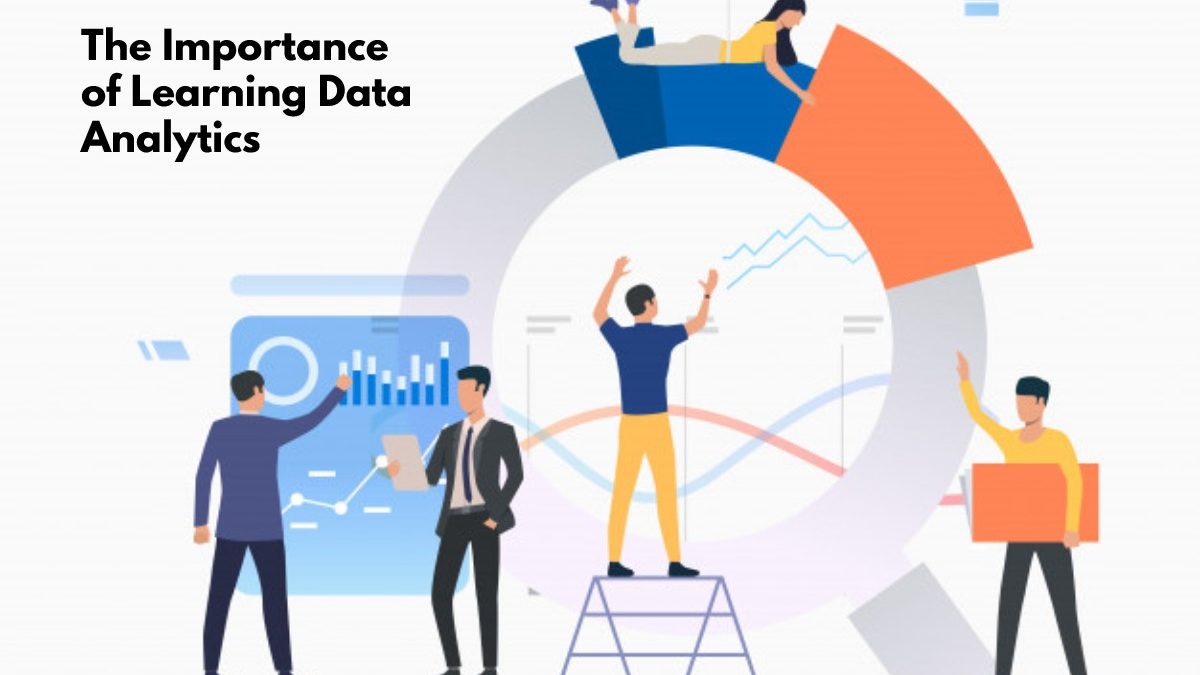Data Analytics is known as the process of analyzing raw data to find trends and answer questions. This process involves many techniques with different goals. It also has some components that can help a variety of initiatives, and if combined, a successful data analytics initiative will present a clear picture of the present and future positions.
The Data Analytics process begins with descriptive analytics that describes the historical trends in data. It aims to answer the question “what happened?” and involves measuring traditional indicators such as ROI (return on investment). Descriptive analytics does not make predictions or directly inform decisions. It always focuses on describing/summarizing data in a descriptive and meaningful way.
The next vital part of data analytics is advanced analytics that takes advantage of advanced tools to extract data. This process makes predictions and discovers trends. These tools involve machine learning and classical statistics. Advanced analytics includes machine learning tools such as neural networks, sentiment analysis, and natural language processing, and more enabled advanced analytics. This process aims to answer “what if?” questions.
Several industries are now enabled to use data analytics techniques because of the easy availability of machine learning techniques, massive data sets, and efficient computing power. So if someone wants to kick start their career in data analytics, then they must take a Data Analytics certification course and gain the required skills. But first, you might want to know why learning data analytics is that important. So, this article answers your question along with the benefits of taking courses in this domain.
Table of Contents
Why Learn Data Analytics?
“There’s no doubt about it – analytics isn’t just the way of the future, it’s the way of right now!” Data analytics has been adopted in all sorts of different industries and is used everywhere, from aviation route planning to predictive maintenance analysis in manufacturing plants. The significance of data analytics skills is only going to become more significant in the future, so everyone should learn Data analysis because of the following reasons.
- Gain Problem-Solving Skills- Analytics is all about solving problems through analytics tools and techniques. These skills help to gain the ability to think analytically and approach problems in the right way that help in making meaningful decisions in everyday life. It also helps to be able to look at a different piece of data and draw a conclusion accurately. So problem-solving skills can make an employee technically advanced from other employees.
- High demand- It is the obvious benefit to learn data analytics. As more businesses and sectors start working with big data, there is a looming skills shortage for data analysts. It increases the importance of data analysts and becomes more valuable. This value is only going to increase, which means graduates with analytics skills will surely be able to command higher salaries.
- Analytics is Everywhere- Data analytics is at its boom nowadays, which means there are all sorts of new opportunities cropping up for talented employees. And, it is the right time to learn data analytics as several organizations are looking to capitalize on data to improve their processes and development.
- Range of Related Skills- Learning data analytics is also beneficial as this field encompasses so much more than simply knowing how to deal with data and solve problems. A data analyst often picks up strong leadership skills and masters communication skills as well.
So these skills are transferable skills that can help in every sector of life as analytics is going to be a massive element of enterprises in the future.
Benefits of Taking Course to Learn Data Analytics
As we know, data analytics is a buzzing word in the IT market; we can outline a few benefits of taking a data analytics course. Some of the crucial reasons to take the course are mentioned below.
- Huge Job Opportunities And Meeting The Skill Gap- The demand for data analytics experts is increasing rapidly, but the supply side is weak, and it is happening globally. So this profession is an in-demand profession, and there are a lot of unfilled jobs across the world due to a shortage of required skills. So it is beneficial for those who are interested in making a career with data which is a quickly growing profession. Many global organizations are outsourcing their work so the demand for talent is expected to be higher.
- High Salary Aspects- High and strong demand for data analytics skills is boosting the salaries for well-qualified professionals. According to a report, the annual median salary for a data analyst is $130,000, which is a 4% increase from the previous year. It shows positive and exponential growth, and a year-on-year median salary change of around 12% is also observed for upcoming years.
- The flexibility of Working in any Sector- A job of a data analyst is a flexible role that you do not bother working in a particular industry. You can work along with other sectors also while working as your main job role. There are many industries that demand data analytics experts – healthcare, finance, retail, logistics, and human resource management.
- Better Practical Knowledge- Learning with data analytics certification course provides you better practical knowledge along with e-learning which is provided by industry professionals who have worked in the same field for years. You will be able to learn and work with tools that are used widely.
- Structured Learning Approach- With the proper certification course, you can learn data analytics in an organized, logical, and structured manner. At the same time, with a course, you also can build a deep understanding of how everything works.
High demand for analytics professionals, a top priority in several organizations, and no prerequisites for taking the certification are more reasons for taking the course of data analytics.

